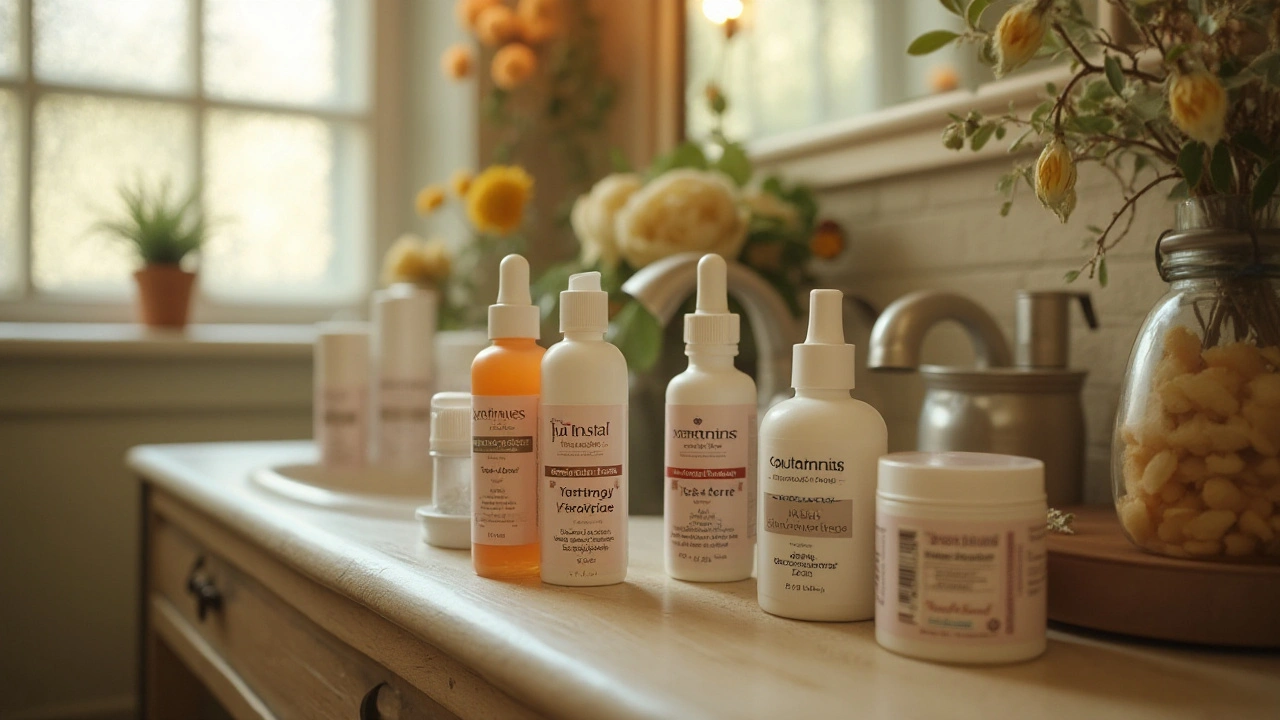Acne Medication: Find the Right Treatment Fast
Breakouts are annoying, but the right medicine can change things. This page gives plain, useful info on over-the-counter choices, prescription options, safety tips, and when to see a pro. No fluff — just what works and what to watch for.
Types of acne medicines and when to try them
Start with OTC products for mild acne. Benzoyl peroxide kills acne bacteria and reduces oil — great for pimples. Salicylic acid helps unclog pores and smooth skin. Look for non-comedogenic lotions so the product won’t add more breakouts.
Topical retinoids (adapalene, tretinoin) speed cell turnover and prevent new plugs. They often cause dryness or irritation at first, so ramp up slowly. Topical antibiotics (like clindamycin combos) can help inflamed acne but are best used with benzoyl peroxide to avoid resistance.
For moderate to severe acne, doctors may prescribe oral antibiotics such as doxycycline or minocycline. If you’re curious about options related to Vibramycin (doxycycline), see our comparison of Vibramycin alternatives here. Hormonal treatments — combined birth control pills or spironolactone — work well for many people with hormonally driven acne. For nodules or scarring cystic acne, isotretinoin is often the most effective, but it needs careful monitoring and strict pregnancy prevention.
Use meds safely and get better results
Give any acne medicine time. Most treatments take 6–12 weeks to show clear improvement. Start slowly: apply topical retinoids every other night at first, and use a gentle cleanser. Patch-test new products on a small area to check for irritation.
Avoid common mistakes: don’t mix benzoyl peroxide and tretinoin at the same time (benzoyl peroxide can inactivate tretinoin), don’t over-cleanse, and don’t pick or pop lesions — that raises the chance of scarring. Always wear sunscreen when using retinoids or chemical exfoliants because they increase sun sensitivity.
Watch for side effects. Topicals often cause dryness and redness. Oral antibiotics can upset the stomach and may lose effectiveness over time. Isotretinoin carries serious pregnancy risks and usually requires blood tests and specialty clinic oversight.
If you’ve tried consistent OTC care for 3 months with no improvement, or you have deep, painful nodules or scarring, see a dermatologist. They can offer stronger prescription options, procedures (like in-office extractions or light-based therapies), or a tailored plan that balances results and safety. For more acne drug choices and alternatives, check our piece on Isofair alternatives here.
Final practical tips: be consistent, use gentle products, protect your skin from the sun, and talk to a clinician about long-term plans. Acne meds work best with patience and the right routine.
Top 10 Alternatives to Isotroin for Acne Treatment
Exploring different alternatives to Isotroin can provide effective solutions for managing acne. From topical treatments like Tretinoin and Benzoyl Peroxide to antibiotics such as Doxycycline and Clindamycin, each option has its unique advantages and drawbacks. This article provides an in-depth look at the pros and cons of ten alternatives, aiding individuals in finding the most suitable acne treatment. Understanding each choice allows for better personal decisions in skin care.
